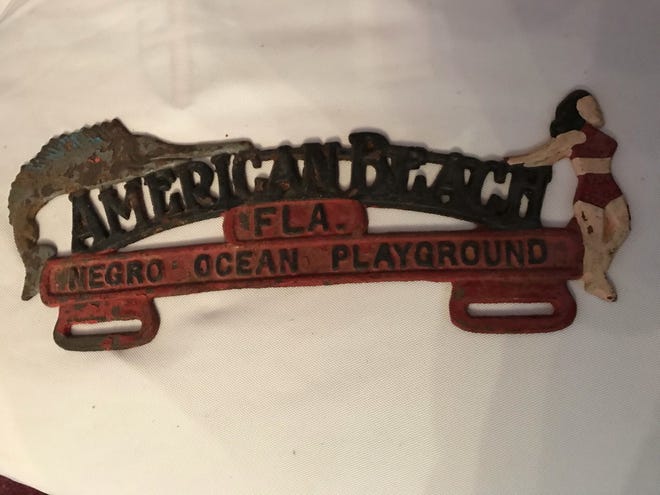Guest column: Remembering American Beach, a 'Negro ocean playground' in Florida – The Florida Times-Union

Though Florida has the longest coastline in the contiguous United States, with 1,260 miles of shoreline running from Amelia Island on the northeast Atlantic coast to Gulf Beach on the Gulf of Mexico, for years state laws forbade Blacks full usage of its publicly owned segregated beaches.
On Jan. 31, 1935, a pristine tract of land nestled in a maritime forest near the southern end of Amelia Island was purchased by members of Jacksonville-based Afro-American Life Insurance Company’s Pension Bureau. Abraham Lincoln Lewis, president, along with William Henry Lee, secretary and vice-president; Louis Dargan Ervin, cashier and vice-president; and M. Evangeline McDonald Johnson, stenographer, signed the deed to this 33-acre beachfront tract that became American Beach.
Right away people piled onto American Beach from all across America. Summertime crowds swelled the population in this community to hundreds of thousands. People felt as welcomed in American Beach as they did in their church, their home and their neighborhood.
It was more than a day beach. Venues for food, lodging, entertainment and recreation accommodated the desires of joyous beachgoers.
Pullman car porters, as well as college professors, quickly spread the word of this safe, Black-owned seaside vacation haven. Feature stories appeared in a plethora of media formats: Color, Ebony and Jet Magazines, The Chicago Defender and The Pittsburgh Courier newspapers, the Negro Motorist Green Book travel guide, radio, billboards, word of mouth and other various sources. Beachgoers described American Beach as “Mecca” or “paradise.”
Many presidents and professors of Historically Black Colleges and Universities frequently vacationed on American Beach. These included Mary McLeod Bethune, of Bethune Cookman College; George W. Gore, Florida A & M University; Nathan W. Collier, Florida Normal and Industrial Institute; Fredrick Douglass Patterson, Tuskegee Institute; and William B. Stewart, Edward Waters College.
American Beach today
Through the years, the social pace has subsided on American Beach. Eclipsed by the rambunctious sights and sounds of people by the thousands, American Beach has become more than a summer beach — it is also home. The architectural façade is changing and construction of towering homes can be seen on every street.
Melodies of the songbird have long since replaced the once vibrant sounds bellowing from nightclub piccolos and jukeboxes. Ospreys perched atop utility poles devouring a day’s catch have dominion where once bustling restaurants like Evans’ Rendezvous and Reynold’s Sandwich Shop served fish dinners to the masses.
Dark clouds
Not every day on American Beach is filled with sunshine and gaiety. Subliminal tactics rapidly leading to the eradication of American Beach are observed.
In 2019 the Nassau County Board of County Commissioners passed an ordinance banning camping, campfires and cookouts, as well as limits on beach driving to Nassau County residents. A guard is posted at the drive-over ramp to the ocean, keeping non-county residents away.
This is a gateway to other obstacles designed to keep more of the public out than in. Thereby, limiting access to beachgoers eager to enjoy Historic American Beach, the beautiful.
The county’s program to tax American Beach property owners for water and sewer by way of a loan, rather than the use of the American Rescue Plan Act, will force many to sell or lose their property.
My hopes and prayers are that I am able to live out the full of my life on American Beach, and not have to relocate due to the high cost of infrastructure and neighborhood maintenance.
For a more complete story, read “An American Beach for African Americans” or visit Coastonetoursllc.com for Ron Miller’s jaw-dropping tour of American Beach.
Thanks be to God for the memories.
Marsha Dean Phelts, author of “An American Beach for African Americans,” was a contributor to the Florida Star newspaper and spent many years as a librarian in the Florida genealogy department of the Jacksonville Public Library.







